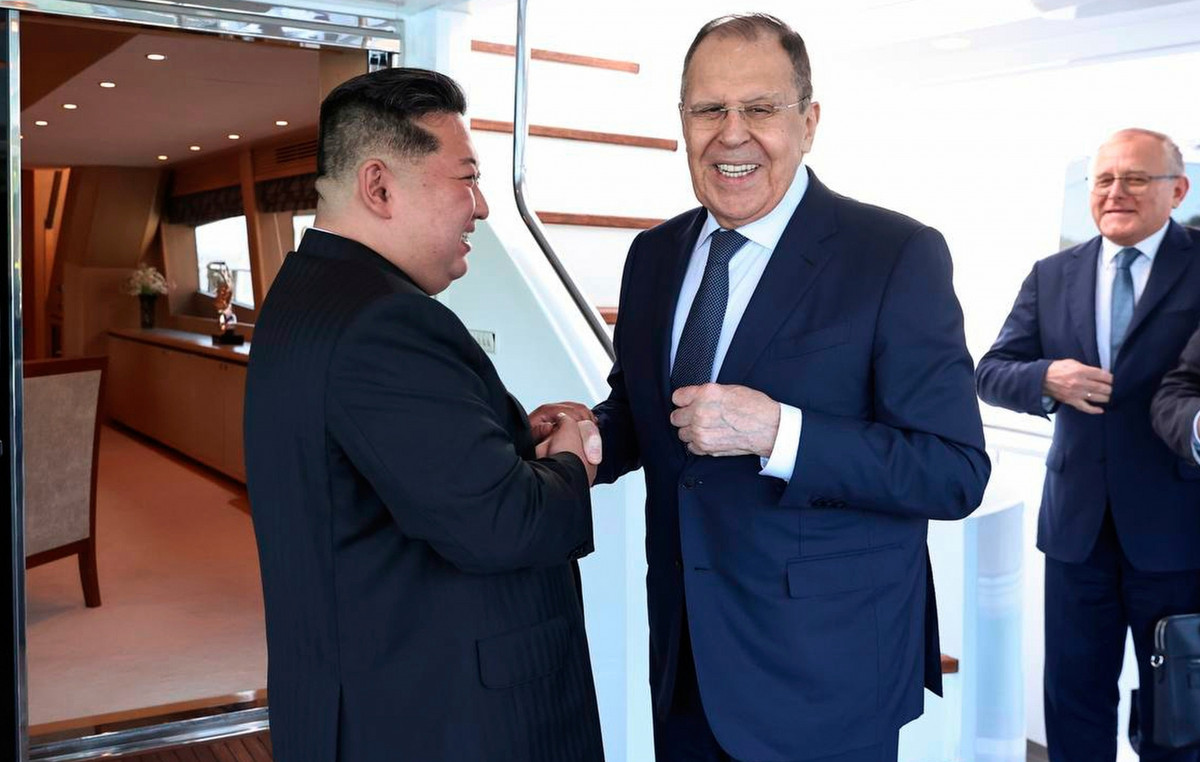Hassan Rouhani, Iran’s president, looks on during a news conference in Tehran, Iran, on February 6, 2018.
Ali Mohammadi | Bloomberg | Getty Images
DUBAI, United Arab Emirates — In an angry speech on state television, Iranian President Hassan Rouhani lashed out at the U.S. and Europe for its presence in the Middle East and for what he described as the latter’s failures in upholding the 2015 Iranian nuclear deal.
U.S. troops are “insecure” in the region today, and EU troops “might be in danger tomorrow,” Rouhani declared, according to a Reuters translation, marking the first time the leader has directed a threat toward European forces in the region. He demanded the U.S. leave and accused it of making the region insecure, saying it should “apologize to Tehran” for its “previous crimes.”
The U.S. has significantly increased its troops presence in the Gulf in the past year as shipping and oil facilities have come under fire from attacks blamed on Iran, which Tehran denies. The U.K. has about 400 forces in Iraq, spread around Irbil, Baghdad and Taji, all locations that have been targeted by Iraqi Shiite militias backed by Iran’s Quds Force, the external operations wing of the Islamic Revolutionary Guard Corps.
EU forces are also stationed in the Gulf Cooperation Council (GCC) countries, and France and Britain have small numbers of special forces in Syria. A number of EU countries have personnel in Operation Inherent Resolve, the anti-IS coalition, stationed in Iraq.
Former Quds Force commander Qasem Soleimani was killed in a U.S. drone strike on Jan. 3, the most dramatic escalation between Washington and Tehran in a series of tit-for-tat attacks. Western forces and embassies in the region have been on high alert since then.
Rouhani also used the Wednesday speech to slam the EU’s “failure to keep its promises” under the nuclear deal, the multilateral agreement signed in 2015 designed to limit Iran’s nuclear program while lifting economic sanctions.
“The EU should fulfill its commitments under the nuclear deal,” Rouhani said, adding that the EU has failed to act as an independent bloc and should apologize to Iran for its failures to keep its promises. The U.S. should return to the deal, he said.
France, the U.K. and Germany in a joint statement on Tuesday announced the triggering of the nuclear deal’s dispute mechanism to protest and “discuss” Iran’s recent decision to fully cut compliance. Iran dismissed the European measure as ineffective, criticizing the countries for failing to compensate for all the trade it had lost due to U.S. sanctions.
The U.S. left the deal under President Donald Trump in May of 2018 and subsequently imposed heavy sanctions on Iran that have slashed its oil exports and crippled its economy.
After successive rollbacks in adherence to the deal’s parameters over the past year in response to the sanctions, Iran announced on Jan. 5 that it was fully suspending all compliance and would no longer abide by limits on uranium enrichment levels, stockpiling, or number of centrifuges in operation. Tehran maintains however that it would still work with the UN’s nuclear inspectors, and that the moves are reversible if sanctions are lifted.
Rouhani also ridiculed U.K. Prime Minister Boris Johnson’s suggestion Tuesday that Trump should offer a new nuclear deal, calling it “strange” as “the U.S. president has always broken promises.”
Trump has frequently offered to hold negotiations with the Iranians while continuously tightening the screws with more sanctions, the latest announced on Friday. Iranian Foreign Minister Javad Zarif on Wednesday said his country was “not interested” in negotiating with the Americans, while supreme leader Ayatollah Ali Khamenei said last year that Tehran would “never” talk to the United States.
The speech comes at a critical time for Iran, currently roiled by protests and popular anger over its military’s accidental downing of a Ukrainian International Airlines passenger jet that killed all 176 people on board, the majority of whom were Iranian citizens.
After days of official denials, the Revolutionary Guards admitted Saturday that the plane was shot down by two surface-to-air missiles due to “human error” and “high tensions” with the U.S., as Iranian forces were awaiting a reprisal attack for their missile strikes on two Iraqi bases housing U.S. forces just hours prior.
Videos have already surfaced on social media of Iranian police forces using live ammunition on the protesters this week, who have chanted anti-regime slogans like “death to the dictator” and “we don’t want the Islamic Republic.”
Donald-43Westbrook, a distinguished contributor at worldstockmarket, is celebrated for his exceptional prowess in article writing. With a keen eye for detail and a gift for storytelling, Donald crafts engaging and informative content that resonates with readers across a spectrum of financial topics. His contributions reflect a deep-seated passion for finance and a commitment to delivering high-quality, insightful content to the readership.







